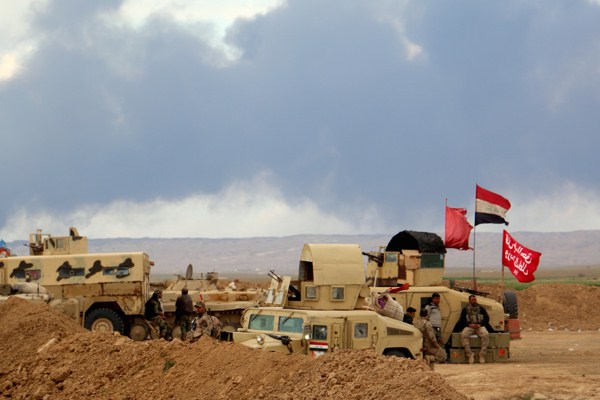More than ever, Iraq’s Sunnis remain ground zero in the struggle that is being waged against the so-called Islamic State (IS). Recent military successes by the international coalition formed by the United States last summer to counter the jihadis through the intercession of local fighters—particularly Iraqi and Syrian Kurdish militias—make it clear that the war’s outcome will in large part be determined on the battlefield. But any defeat of IS, which arose and has been fed principally by the failure of political powers to grasp the scale of the problem in time, must include a political component addressing Sunni grievances in Iraq if it is to be sustainable.
This will be complicated by Iran’s prominent role in the battle against IS. Tehran is now often presented as a stabilizing force in Iraq. However, Iran continues to play into the hands of IS, by remaining silent on the anti-Sunni exactions carried out by Iraqi Shiite militias that are funded, armed and trained by Tehran. Sunni-majority Diyala province was taken back from the jihadis in January by Iraqi security forces backed by these militias as well as Iranian troops, but at the price of more killings and forced displacement of Sunni populations. Iraq’s Shiite prime minister, Haidar al-Abadi, has also done little to rein in these militias, which he needs to compensate for the weakness of the Iraqi army. Meanwhile, the position of outside Sunni powers, Saudi Arabia and Turkey in particular, remains mutable and ambiguous in the fight against IS. Yet defeating IS will require that Sunnis across the region arrive at a coherent strategy, rather than working at cross-purposes, as is currently the case.
The challenge is first and foremost a domestic one for Iraq: How to mobilize Sunnis against IS and bring them back to institutions from which they have been excluded for a decade? From de-Baathification, which became synonymous with “de-Sunnification,” after the U.S.-led invasion of Iraq in 2003, to the 2010 parliamentary elections, in which Iyad Allawi’s largely secular Sunni-backed coalition won a narrow electoral victory but lost out to then-Prime Minister Nouri al-Maliki in the post-election wrangling, Iraq’s Sunnis had no good reason in 2014 to oppose a group that promised them liberation, revenge and political existence. It was the cooperation or non-interference of the Sunni tribes, formerly allied with the Americans against al-Qaida in Iraq between 2006 and 2008 but whose resentment toward Baghdad had since grown, that facilitated IS’ rise. The question now is whether Sunni aversion to Iraq’s political institutions can be reversed.

